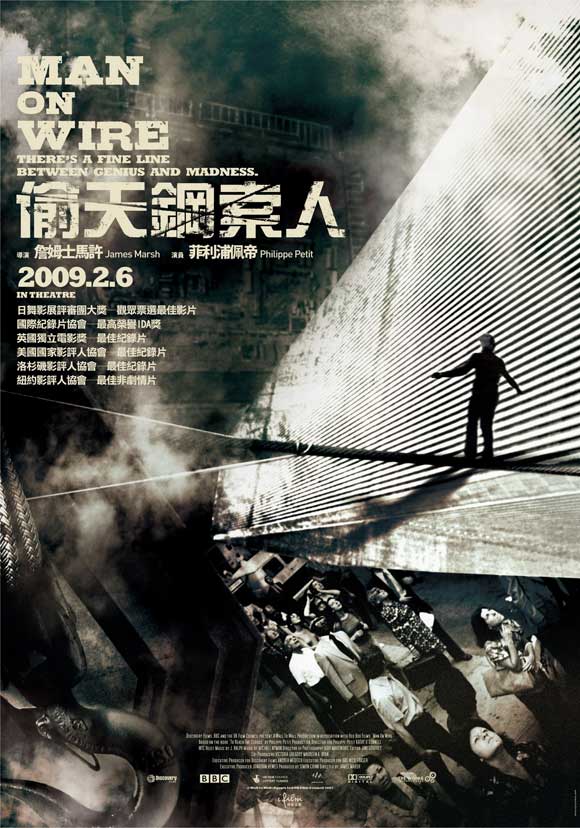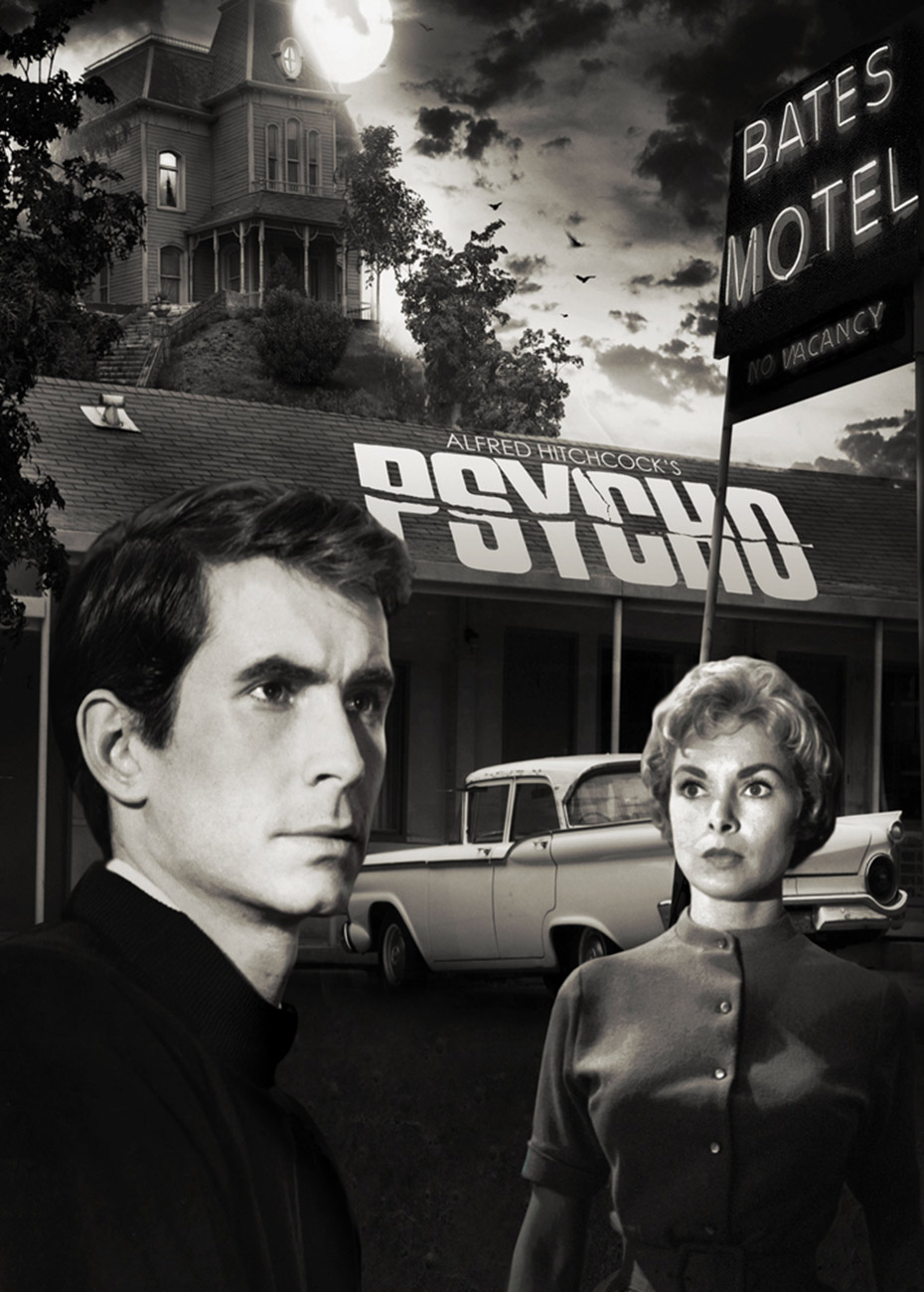
Man on Wire
Director- James Marsh
Distributor- Magnolia Pictures
Starring- Philippe Petit, Annie Allix, Paul McGill, Jean François Heckel
Man on Wire is definitely seen as a documentary of uniqueness and creativity. It is not a typical mundane, explanatory, and tiring documentary. I viewed it as a thrilling and enlightening. The film explains the journey of a young Frenchman named Philippe Petit, who stepped out on a wire illegally rigged between the New York World Trade Center’s twin towers. This extraordinary documentary incorporates Petit’s personal footage to show how he overcame continuous challenges to achieve the artistic crime of the century.
Throughout the film, we view countless moments of determination and risk. Whether it be Philippe Petit performing his art of, wire walking or his courageous journey of performing the most incredible wire walk to be performed, on the World Trade Center. Through it all, he is truly inspiring and brings insight but on a deeper level that needs analyzation. He is inspiring through his determination to fulfill his dream of walking across the World Trade Center since the early age of nine. Through countless hours of preparation, failure, practice, and his crazy decisions to make sure it would work. But through all of this, he was trying to bring life lessons out of it all. His message was "Intuition is essential in my life." He didn't just walk the wire from one World Trade Center to another, there was a process, a journey he had to fulfill in order to get to that life-changing moment. The journey was harsh, no one taught him how to wire walk, he had to use intuition in order to learn, through constant practice and viewing of high-wire walkers at a circus. As he stated, "Within one year, I taught myself to do all the things you could do on a wire. I learned the backward somersault, the front somersault, the unicycle, the bicycle, the chair on the wire, jumping through hoops. But I thought, "What is the big deal here? It looks almost ugly." So I started to discard those tricks and to reinvent my art" This then lead to his first major wire walk in June 1971. Petit secretly installed a cable between the two towers of Notre Dame de Paris. On the morning of June 26, 1971, he juggled balls and pranced back and forth as the crowd below applauded. Through all of the success, he had to become innovative and creative, wire walking was an everyday hobby, it was unheard of. Through the documentary, Philippe carried the message, we must learn to live life with risk. We must be able to deal with all the troubles and issues that life throws at us and be able to balance it all while walking on our fine wire to the path to success.
Although people may view his biggest challenge of all is when he stepped out on a wire illegally rigged between the New York World Trade Center’s twin towers. However, his biggest challenged was his dance on the wire with Annie Allix. Annie Allix was crucial to Petit's accomplishment, but, unlike Petit, she appears to prefer to stay out of the public eye. This is what had led to their separation. During the conclude of the documentary, they spoke very brief of their reasoning of separation, only explaining that due to brief obsession for fame. During that time, he lost part of the close members who been apart of the treacherous journey from the beginning and became consumed by the temporary love of his viewers, costing him to lose Annie Allix essentially his balance beam on his walk on life.
I would highly recommend this movie to people who have a talent for seeing the deeper messages in what they view. This movie may have been unorthodox for a documentary however, there are many messages spread throughout the movie that cannot be uncovered through just one viewing.







